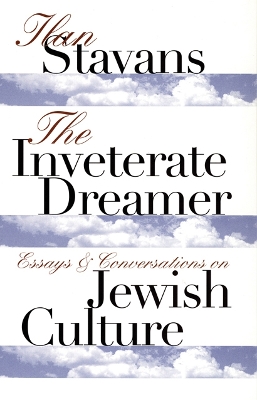Texts and Contexts
2 total works
Not only do "modern" Jewish languages like Yiddish and Hebrew have their own Jewish writers, but every major Western tongue-from German and Russian to English and Portuguese-does as well. These writers are often at the crossroad between the two traditions: their Jewish one and their own national one. Is there such a thing as a modern Jewish literary tradition, one navigating across linguistic and national lines? If so, how should one define it? Ilan Stavans is uniquely qualified to answer these questions and to comment on the power and challenges of cultural margins and literary crossings. He has been at the forefront of an appreciation of the Jewish literary tradition that is less asphyxiating, more global. His reflections on Jewish Latin America have won him the nickname "pathfinder." This incomparable volume showcases Stavans's most insightful and provocative-and at times controversial-observations on transnational Jewish culture and literature. Stavans explores the problems and prospects of representing Jewish experiences through such media as Holocaust memoirs and Jewish museums; astutely comments on well-known intellectual figures, including Lionel Trilling, Isaac Babel, Primo Levi, Harold Bloom, and Walter Benjamin; engages in memorable conversations with Norman Manea, Joseph Brodsky, and Ariel Dorfman; and offers compelling glimpses of revelatory moments in his own life.
A cultural critic of extraordinary erudition, encyclopedic knowledge, and boundless curiosity, Ilan Stavans, an Ashkenazic Jew who grew up in Mexico, negotiates wildly varied topics as effortlessly and deftly as he manages the multiple perspectives of a dual national, religious, and ethnic identity. In Singer's Typewriter and Mine, a follow-up to The Inveterate Dreamer (Nebraska, 2001), Stavans interweaves his own experience with that of other Jewish writers and thinkers, past and present, to explore modern Jewish culture across the boundaries of language and nation. Juxtaposing the personal and the analytical, these essays and conversations take up the oeuvres of Isaac Bashevis Singer and Mario Vargas Llosa, translation and God's language, storytelling as midrash, anti-Semitism in Hispanic America, Yiddish and Sephardic literatures, the connection between humor and terror, impostors as cultural agents, the creators of the King James Bible, and the encounter between Jewish and Latino civilizations, to name but a few of Stavans's topics here. Funny, engaging, and provocative, this collection continues Stavans's project of opening new vistas in our cross-cultural understanding of language, literature, and life.

